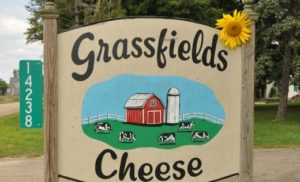It’s been a bad week for cheese. Lots of salmonellosis cases were linked to a North Carolina artisanal creamery and a farmstead cheese maker in Michigan was linked to STEC illnesses. More details today from WOOD8.
The husband and wife who own Grassfields Cheese decided to recall 20,000 pounds of cheese — most of what they make in a year — and now they question if they will be able to recover.
“To those people that are sick, that weighs on me,” said Luke Meerman, owner of Grassfields Cheeses.
Meerman is a fifth-generation on the primarily dairy farm that has been in operation since 1882.
He and his wife, Victoria, decided 15 years ago to make organic cheeses made from the grass-fed, antibiotic-free cows raised on the family farm.
The business did not make the family rich, but it was popular online and is sold around the nation at Whole Foods.
On Monday, Meerman said he was contacted by the Michigan Department of Agriculture that cases of Shiga toxin-producing E. coli, a bacteria that can cause serious illness in humans, were reported.
Then it was confirmed as state officials tell me that seven people have been made sick — including one in Kent County — and one person was hospitalized.
Several of the people sickened by E.coli said they had eaten restaurant meals containing Grassfields cheese. State lab workers are testing additional cheese samples.
